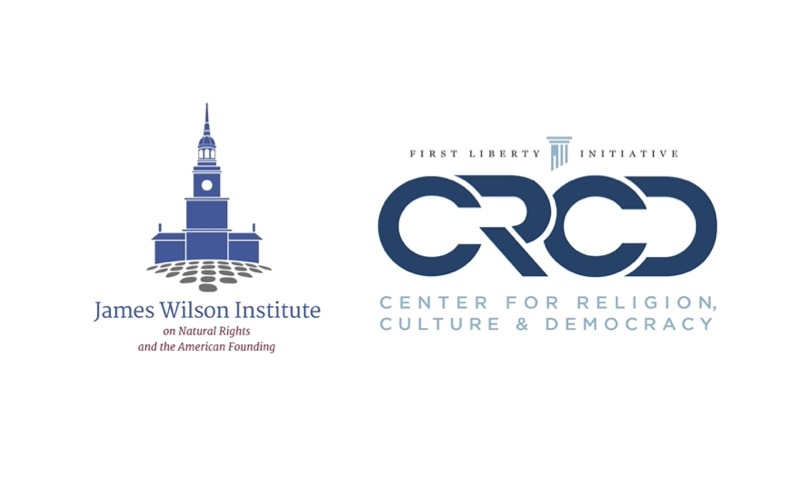
A growing number of high-profile clashes over religious liberty in the courts and in the streets shows a growing gulf between religious practice and how that practice is viewed under American law. But not all religious liberty claims are created equal.
It is a perennial challenge to identify the proper limits to religious liberty in America and rightly apply these limits. How can we tell when someone’s request to be exempt from the law of the land is genuine, principled, and worthy of respect? And how can we know when such requests are merely a pretext for the privileging of illegal and even immoral behavior?
Some of the more recent claims to religious liberty are useful for understanding the legal boundaries. The recently passed restrictions on abortion in Texas, for instance, provide a lens for determining how to identify the limits. In response to these and other measures intended to protect the unborn, Satanists have invoked religious liberty rights in an attempt to guarantee access to abortion.
On one level, the novelty of such claims is explicit. Satanists have created a new religious ritual to try to sacralize abortion and cast it as an act of worship. As the documentation for the ritual states, the ceremony “sanctifies the abortion process by instilling confidence and protecting bodily rights when undergoing the safe and scientific procedure.” The Satanic Abortion Ritual even includes a step-by-step guide that can be downloaded.
The strategy here is evident: invent a pseudo-religious justification for an activity that has been restricted in an audacious attempt to undermine any limitations on abortion. The Satanists want to mimic the legitimate and genuine religious convictions of other faiths and thereby use the religious liberty protections offered by the 1992 Religious Freedom Restoration Act as cover.
On another level, however, there is some significant religious precedent for the kinds of things the Satanists are attempting to protect. The Hebrew Scriptures recount (and condemn) instances of human and child sacrifice in the ancient world. The Ancient Near Eastern deity Molech was a particularly bloodthirsty god. This kind of ritual sacrifice and violence was not confined to the ancient world. The archeological record in the Americas shows that Mesoamaerican groups including the Aztecs practiced ritual murder as part of their religious traditions only a few hundred years ago.
The political theorist William Galston once captured the basic, common-sense insight by which such activities—whether justified by religious appeals or not—are appropriately prohibited by law. The idea, associated with the political philosopher John Locke, is that morality—defined in terms of the natural moral order—provides the boundaries for legally acceptable religious practice.
Locke famously argued that the sacrifice of infants, for example, should not be tolerated because such activities “are not lawful in the ordinary course of life, nor in any private house; and therefore neither are they so in the worship of God, or in any religious meeting.” These boundaries based on an understanding of the natural law are best understood as broad and principled: they exclude clearly immoral acts and behaviors (such as child sacrifice) even as they leave room for all kinds of diverse expressions of faith and worship (this is why Locke argues in favor of allowing animal sacrifice, however).
Understanding natural law—what the Apostle Paul said God has “written in our hearts” (Rom 2:15)—is foundational to Christian moral thinking. And while Christians have particular grounds for affirming the objective moral order, the natural law animates the reasoning ability of all people to make moral judgments. Some things, known to the conscience and discoverable by reason, are obviously wrong or immoral. And there are clearly immoral activities, things that violate the natural law as well as positive law, that are enshrined in religious practice or at least claim to have a veneer of religiosity. The Satanic Abortion Ritual is a prime example.
Galston puts the conclusion to such reasoning this way: “No free exercise for Aztecs.” And the same ought to be true for abortionists. The Texas law and other legislation that limits abortion recognize that a mother’s claims to bodily autonomy, whether based on secular humanism, religious conviction, or other grounds, are not the only relevant considerations. The human life of the preborn child is worthy of protection and concern. Basic human morality recognizes this, and the law, where it does its duty to affirm such fundamental dimensions of justice, should not be abrogated on the basis of free exercise claims.
Where the civil law has restricted abortion, invocations of religious liberty provide no justification for a wholesale exception. There can be no religious exemption for immoral activities that manifestly violate the natural law, the Constitution, and human rights. And the sacrifice of human life—whether in service of Moloch, Satan, or the Autonomous Self—is clearly such a violation.




